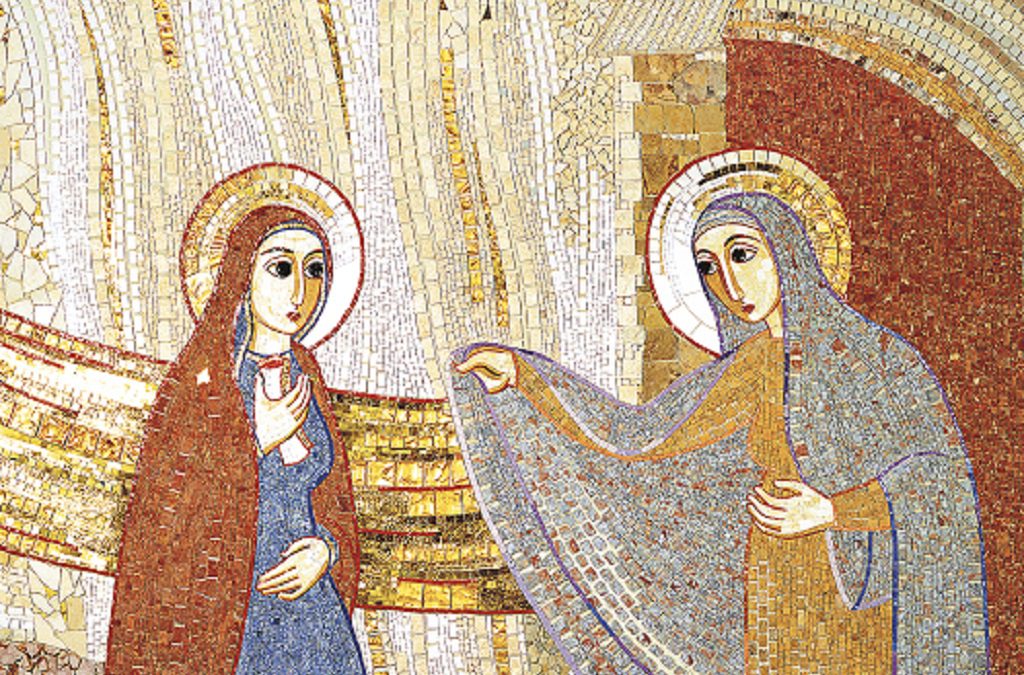Zeph 3,14-17 or Rm 12,9-16b; Psalm. Is 12,2-6; Lk 1,39-56
It is wonderful to see that the proclamation of the Good News and its joyful reception have their first fulfilment in the encounter between two women: Mary who carries the most precious gift that she has, Jesus her son, and Elizabeth who with her son, John, in her womb, welcomes her jubilantly, recognizing in her the ark of the covenant, the place of the full communion between God’s grace and our humanity.
They are women who believe in the Word, capable of relationship and care for the other. In their encounter, in their exchange and mutual listening, they are a clear sign that the prophecies regarding the coming of the Messiah have been fulfilled. Thanks to them, «‘who rival each other in giving praise’; life has been given back to the world» (Venerable Bede, Office of the Readings, 22 December).
As soon as Mary receives the visit of the Lord, she leaves her house, and ventures out on a journey ‘in haste’ to visit her cousin. “Three words sum up Mary’s attitude: listening, decision, action. They are words that point out a way for us too as we face what the Lord asks of us in life”, suggests Pope Francis (Recital of the Holy Rosary for the conclusion of the Marian month, 31.5.2013). In Mary not only do we find a listening to the Word, but also an attentive listening to the reality, to the facts of life situations. She does not demand signs from God, however, she accepts the sign that he gives her and she sets herself in motion. She is not anxious, or nervous, but once she understands the Lord’s plan, she decides to set out in haste because charity does not permit delays. When we have to do with the real good of our lives, of the lives of every person, we cannot allow any laziness, slowness, or yield to the search for comfort.
Elizabeth is one who waits. She represents the expectant waiting of the people of the old covenant, but she is also the woman who recognizes and accepts the presence of the Lord and the fulfilment of the promises of the Kingdom in her cousin’s visit, in the human reality of their encounter. Her capacity is an encouragement for us to listen to the Word in the sacred Scriptures, which has to educate us to discern the presence of God in our history, in the events and people around us.
In fact, God visits us always, but it is up to us to be waiting and recognize him in every-day life, in unforeseeable and unprecedented events in our lives. To bear as Mary and receive as Elizabeth did, the presence of Jesus: both of these are two essential dimensions of the Church’s mystery, and therefore ours too. This is what we are called to live daily.
– by Mother Annamaria Viganò, NSDU 2017, special issue (pgs 168-170)

